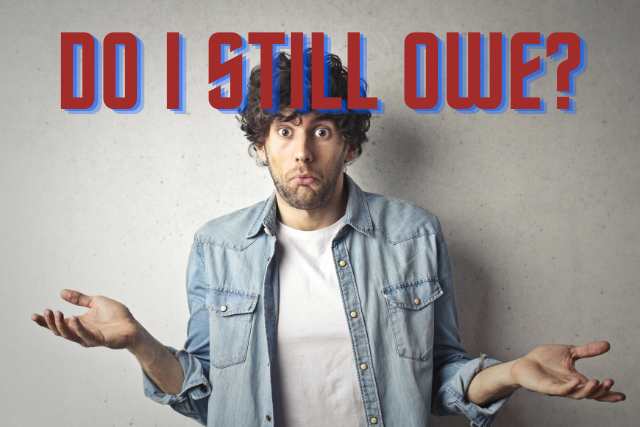Do I Still Owe Money on a Charged Off Account?

The world of credit is full of funny terms and acronyms that consumers may find confusing. One example is the term charge off. Some people see a notation indicating “charge off” on their credit report and may believe it means they no longer owe the associated debt. However, that assumption is incorrect. The answer to the “Do I still owe money on a charged off account” is certainly, yes.
What Is a Charge Off?
If you fail to repay a credit obligation as promised, the creditor may eventually decide to charge off the account as a bad debt. A charge off is an accounting classification to indicate a loss taken by a creditor. The amount of time it takes for your creditor to charge off your account could vary, but a charge off is more likely to happen once you’re 120 to 180 days past due.
After a lender charges off an account, it can write off the loss for tax purposes. On the consumer side of the equation (that’s you), the account will also be closed to future charges if it hasn’t been already. This does not mean you’re released from your credit obligation. You will still owe the debt even after a lender charges it off.
How Does a Charge Off Affect Your Credit?
When a creditor charges off your unpaid debt, you might see the term “charge off” associated with the account the next time you check your credit reports. Credit scoring models, like FICO, view charge offs as derogatory (aka negative) events. As a result, they may have a negative impact on your credit score.
In addition to charging off an unpaid debt, a creditor may also sell or assign the debt to a third-party debt collector (aka a collection agency). So, there’s a chance your credit report could reflect both the original account and a collection account associated with the same debt. Yes, this is perfectly legal.
If a collection account does show up on your credit reports, you might be in for another disappointment. A collection account has the potential to cause credit score damage just like the charge off notation on the original account. And, even if you pay the collection account it is likely to remain on your credit report for up to 7 years from the date the original account started going delinquent.
Will Paying a Charge Off Improve Your Credit?
First off, you should always pay your credit obligations. And, if you can afford to do so, you should pay your credit obligations even after they get to the charge off stage. But it’s important to understand that paying or settling a charged off account won’t erase the fact that you defaulted on a debt.
When you pay or settle a charge off, the creditor should update your account to reflect a zero balance. A collection agency should do the same if the debt was sold or assigned to a third party. But the charge off (and any associated collection account) probably won’t come off your credit report right away. The Fair Credit Reporting Act (FCRA) allows charge offs to stay on your credit report for up to seven years whether you pay them or not.
The Bottom Line
You still have a legal obligation to pay charged-off debts. The act of charging off doesn’t undo your original loan obligation or credit card agreement, nor does it equal a forgiveness of your debt. If you aren’t sure if you have charged off debts appearing on your credit reports you can check them, for free, at www.annualcreditreport.com.


